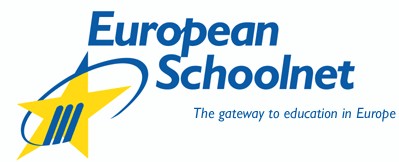Via: FLUX – Games in School, a Pan-European Study
European Schoolnet is undertaking a major study for the Interactive Software Federation of Europe on the use of games in schools in Europe: video games, computer games, online games that run on consoles, computers, handhelds or mobile phones.
The study aims to:
1. Define ‘games’ and assess their level and use in schools in Europe
1. Define ‘games’ and assess their level and use in schools in Europe
2. Analyze the use of video games as a educational tool, drawing upon existing research
3. Scope a ‘critical video games education’, including identifying how to build up young people’s key competence of digital literacy (more critical and responsible in their video games use)
4. Build up a European community of teachers to share and disseminate their projects and experiences
The project includes a survey which is intended to develop greater intelligence about the (potential) use of games for education, which is available in multiple languages at the Games in Schools project blog.
The project includes a survey which is intended to develop greater intelligence about the (potential) use of games for education, which is available in multiple languages at the Games in Schools project blog.
Here is the teaser:
“We hear more and more about computer games and they are getting more and more sophisticated, but what is their place in school? Opinions among teachers seem to be divided with some enthusiastic teachers using them effectively, some skeptical and some hostile. What is your opinion?”
Online survey in English, French, German, Spanish, Danish and Estonian
About the Interactive Software Federation of Europe
The interactive software industry, which includes PC and video games, reference and educational works on CD-ROM, is the European content industry's fastest growing sector. In 2007 interactive software sales in nine of the major European markets reached an approximate total of €7.3 billion (games software alone, excluding the revenue generated by sales of hardware). As a matter of comparison, Interactive Software weighs already as much as the EU's film video market, and significantly more than its box office market.
ISFE (the Interactive Software Federation of Europe) was established in 1998 to represent the interests of the interactive software sector vis-à-vis the EU and international institutions. Initially founded by the national interactive software trade associations in the UK, France, Germany and the Netherlands, ISFE was enlarged in January 2002 to include any company representing the industry within the 27 Member States plus Norway, Iceland, Switzerland and Liechtenstein. Thirteen major publishers of interactive software and thirteen interactive software trade associations throughout Europe have joined ISFE.
Registered in 2002 under Belgian law as an international association with scientific and pedagogical purposes, ISFE represents the interest of its membership to the main stakeholders, be they EU institutions, international organizations, academics, or the general public. This objective is pursued through a variety of actions, one on one meetings, conferences, sponsorship, etc. Since 2003, ISFE has also been running the Pan-European Game Information (PEGI) system, a successful experiment in self-regulation.
About European Schoolnet
European Schoolnet (EUN) is a unique not-for-profit consortium of 28 ministries of education in Europe created in 1997. EUN provides major European education portals for teaching, learning and collaboration and leads the way in bringing about change in schooling through the use of new technology.
Since its establishment, European Schoolnet (EUN) has been at the forefront in supporting the European dimension in schools. This goal is achieved through projects, competitions, activities, communication and information exchange at all levels of school education using innovative technologies.
European Schoolnet is at the crossroads of national and regional education networks, building synergies between communities of teachers, learners, developers, researchers and policy-makers.
EUN’s work is organized in three strands corresponding to its core objective of supporting the efficient use of ICT in education and the European dimension in education: School networking and services; knowledge building and exchange on ICT policy and practice and Interoperability and content exchange.

